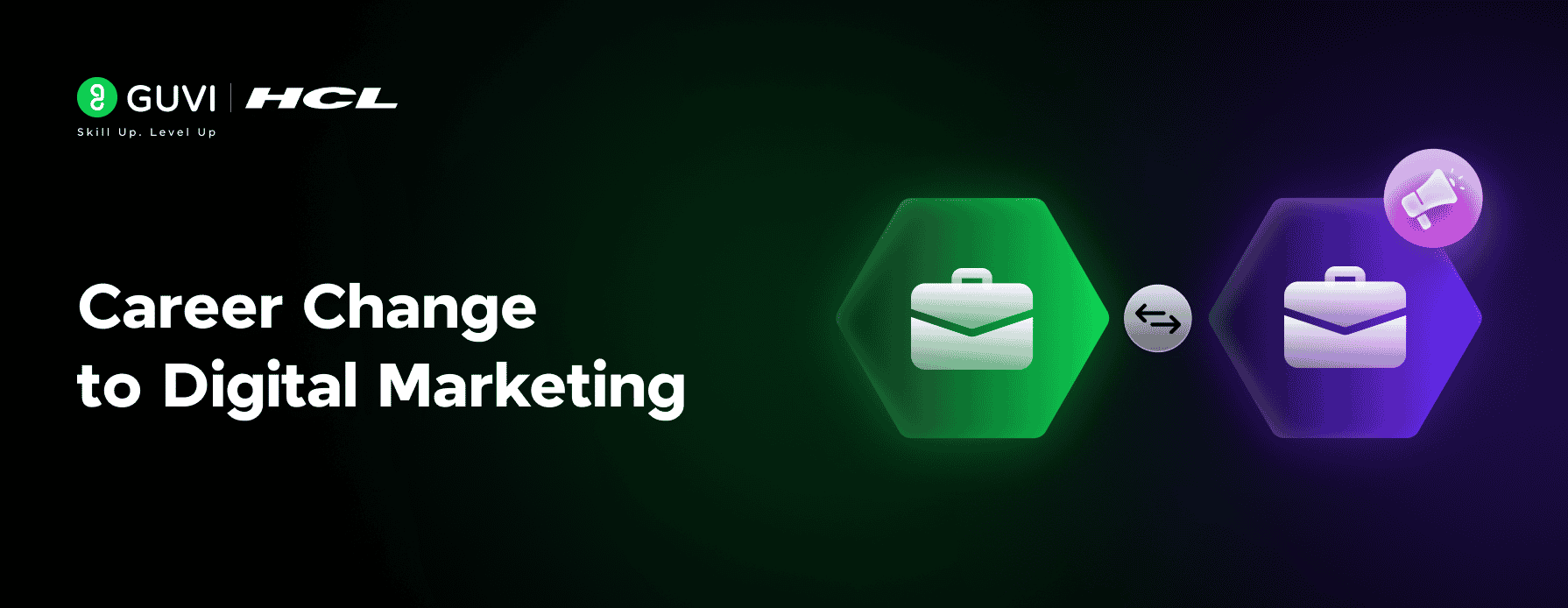
8 Important Steps for a Career Change To Digital Marketing
Mar 03, 2025 5 Min Read 2830 Views
(Last Updated)
Switching careers can be both exciting and daunting, especially when you’re diving into a fast-paced and ever-evolving field like digital marketing.
The good news? It is not as complex as you think, and many have successfully made this leap, finding rewarding opportunities in a field that thrives on creativity, strategy, and innovation.
If you’re considering a career change to digital marketing, this guide will walk you through everything you need to know, from understanding the industry to building the skills you need to land your first role. Let’s get started!
Table of contents
- What Is Digital Marketing?
- Step-by-Step Guide for a Career Change to Digital Marketing
- Understand What Digital Marketing Is
- Figure Out What Skills You Already Have
- Learn the Basics Through Online Courses
- Start Building Your Own Online Presence
- Get Practical Experience
- Network with People in the Industry
- Update Your Resume and Apply for Jobs
- Stay Updated and Keep Learning
- Why Should You Choose Digital Marketing As Your Career?
- Challenges when Switching a Career Change to Digital Marketing
- Conclusion
- FAQs
- What qualifications do I need to start a career in digital marketing?
- How can I gain experience in digital marketing without a prior work history?
- What are the key skills required for success in digital marketing?
- Is coding knowledge necessary for a digital marketing career?
- How long does it typically take to transition into a digital marketing role?
What Is Digital Marketing?
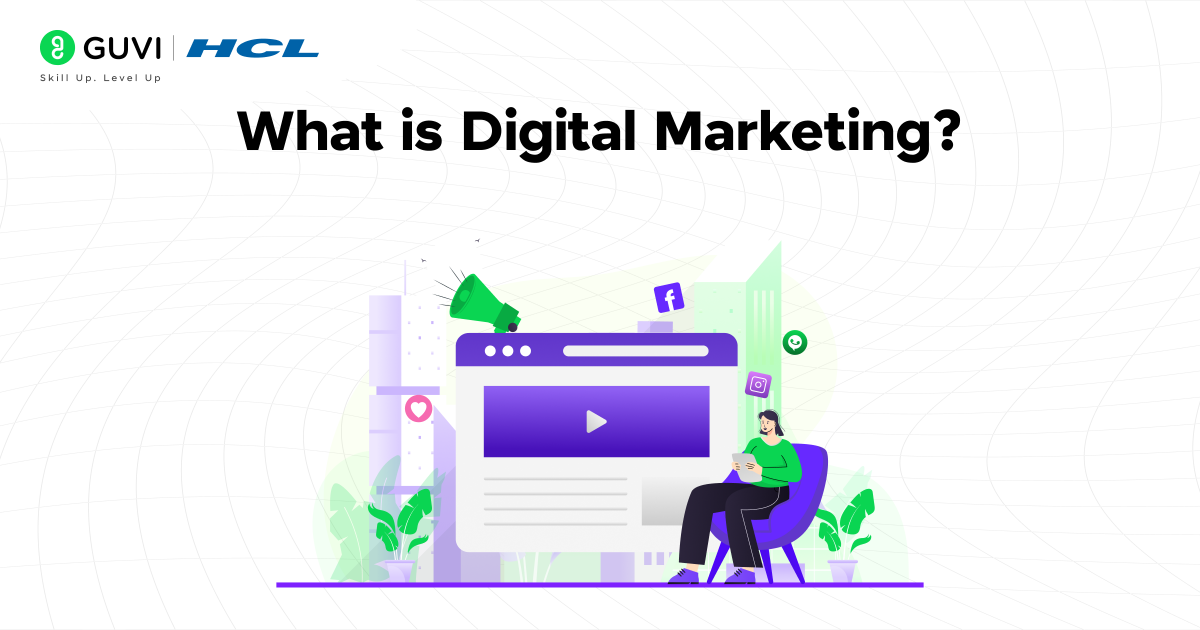
Digital marketing is the use of online platforms and tools to promote products, services, or brands. Unlike traditional marketing methods like TV commercials or billboards, digital marketing focuses on connecting with audiences through the Internet.
It involves strategies that help businesses reach the right people at the right time, whether they’re browsing social media, searching on Google, or checking their emails.
To put it simply, digital marketing is about understanding your audience and using the right digital channels to engage with them.
It includes a mix of techniques like creating content (blogs, videos, infographics), running ads on social media or search engines, sending email campaigns, and analyzing website traffic to optimize results. It’s a dynamic field that combines creativity, strategy, and data to drive results for businesses.
Digital marketing is essential in today’s world because it allows businesses to reach their audience where they spend the most time, online. It’s cost-effective, measurable, and offers endless opportunities for creativity and growth.
Step-by-Step Guide for a Career Change to Digital Marketing
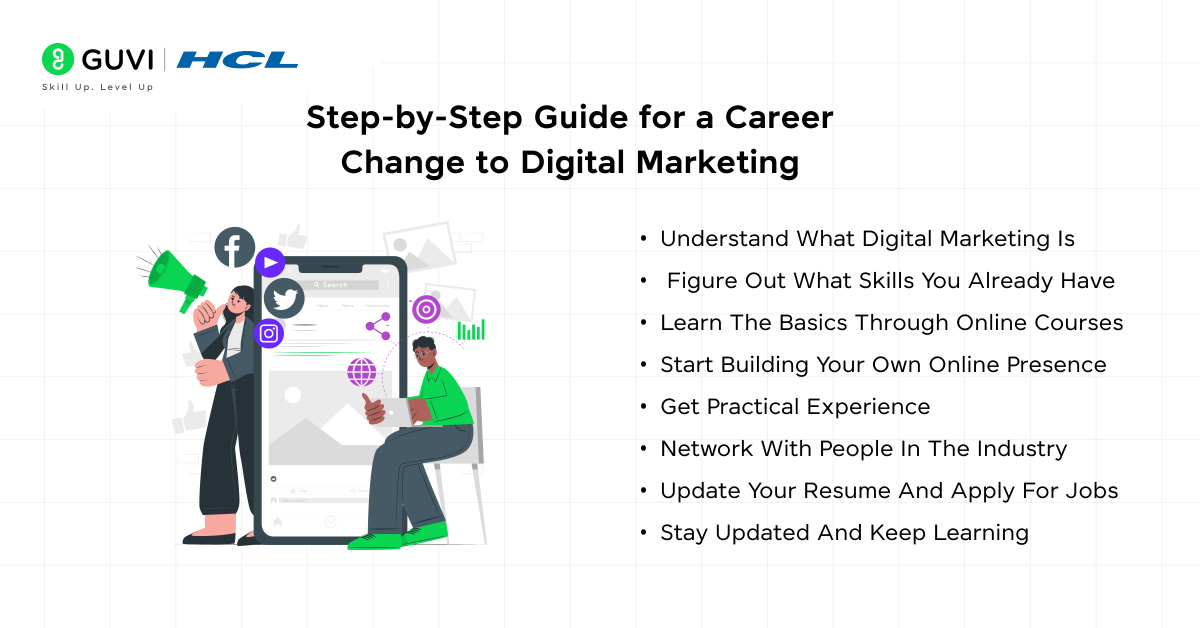
A career change to digital marketing might seem overwhelming at first, especially if you’re new to the field. But don’t worry! Here’s a straightforward, detailed guide to help you navigate this transition.
1. Understand What Digital Marketing Is
Digital marketing is about promoting products or services online. As mentioned earlier, unlike traditional marketing, digital marketing uses platforms like websites, search engines, and social media. Here are the main areas to know:
- Search Engine Optimization (SEO): Making websites appear higher on Google searches.
- Content Marketing: Writing blogs, articles, or videos to attract people.
- Social Media Marketing: Promoting on platforms like Instagram, Facebook, or LinkedIn.
- Email Marketing: Sending emails to connect with customers and boost sales.
- Pay-Per-Click (PPC) Advertising: Running ads where you pay only when someone clicks on them.
Spend time learning about each area, even if only at a basic level. This will help you figure out which ones interest you most.
2. Figure Out What Skills You Already Have
Even if you’ve never done digital marketing, you probably have skills that can help you succeed in the field. Think about:
- Are you good at writing? Content creation might be a great fit.
- Do you love analyzing data? SEO or paid advertising could be your thing.
- Are you organized and love planning? Social media management or project management roles might suit you.
The key is recognizing your strengths and connecting them to areas within digital marketing.
3. Learn the Basics Through Online Courses
You don’t need a fancy degree to start in digital marketing. Many online digital marketing courses are affordable or even free! Here’s how you can learn:
- Google Digital Garage offers free lessons about how digital marketing works.
- HubSpot Academy provides certifications in areas like social media or email marketing.
- Coursera has courses from top universities to build a strong foundation.
- YouTube and Blogs: Plenty of tutorials and articles online explain concepts in simple terms.
Dedicate time to study these courses. Even 1–2 hours a day can make a big difference.
4. Start Building Your Own Online Presence
Think of this as a hands-on learning project. Create something you can use to practice and showcase your skills:
- Start a Blog: Write about topics you love, optimize them for SEO, and track your traffic growth.
- Create Social Media Pages: Pick a platform like Instagram or LinkedIn, and share valuable content consistently.
- Experiment with Ads: Even with a small budget, you can try running Google or Facebook ads to learn how they work.
This will give you real-world experience while also creating a portfolio to show potential employers.
5. Get Practical Experience
Digital marketing is a skill-based industry, so hands-on experience matters more than fancy credentials. Here’s how you can get it:
- Freelance Projects: Offer to help a local business or a friend with their online presence. Maybe write blogs, manage their social media, or run basic ad campaigns.
- Internships: Look for entry-level roles or internships that let you work alongside experienced professionals.
- Volunteer Work: Non-profits and small businesses often need marketing help but have limited budgets. Volunteering can help you gain experience while giving back.
These digital marketing projects will not only help you learn but also give you something to talk about in interviews.
6. Network with People in the Industry
Networking might sound intimidating, but it’s just about building genuine connections. Here’s how you can do it:
- Join LinkedIn Groups: There are many groups for digital marketers. Participate in discussions and share your insights.
- Attend Webinars and Events: Many free (or low-cost) events are held online or in person. These are great for learning and meeting others.
- Reach Out to Professionals: Don’t hesitate to message someone on LinkedIn whose career you admire. Ask for advice, but keep your questions specific and respectful.
Most opportunities in digital marketing come from people you know, so networking is key.
7. Update Your Resume and Apply for Jobs
Once you’ve learned the basics and gained some practical experience, it’s time to start applying for jobs. Here’s how to build your resume and stand out:
- List Your Projects: Include your blog, social media campaigns, or freelance work.
- Highlight Results: Use numbers if possible (e.g., “Increased Instagram followers by 200% in 3 months”).
- Customize for Each Job: Tailor your resume to match the job description. Use keywords like “SEO,” “social media management,” or “email marketing” to grab attention.
Start by applying for entry-level positions, like Digital Marketing Assistant or Junior Content Marketer, and work your way up.
8. Stay Updated and Keep Learning
Digital marketing is constantly evolving. What works today might change tomorrow. To stay ahead, make learning a regular habit:
- Follow Industry Blogs: Websites like HubSpot, Moz, and Neil Patel’s blog share the latest trends and tips.
- Experiment: Try out new tools, strategies, or platforms to keep your skills sharp.
- Join Online Communities: Forums like Reddit’s r/digital_marketing or marketing Facebook groups are great places to learn and share experiences.
Learning never stops in this field, and that’s part of what makes it exciting!
Why Should You Choose Digital Marketing As Your Career?
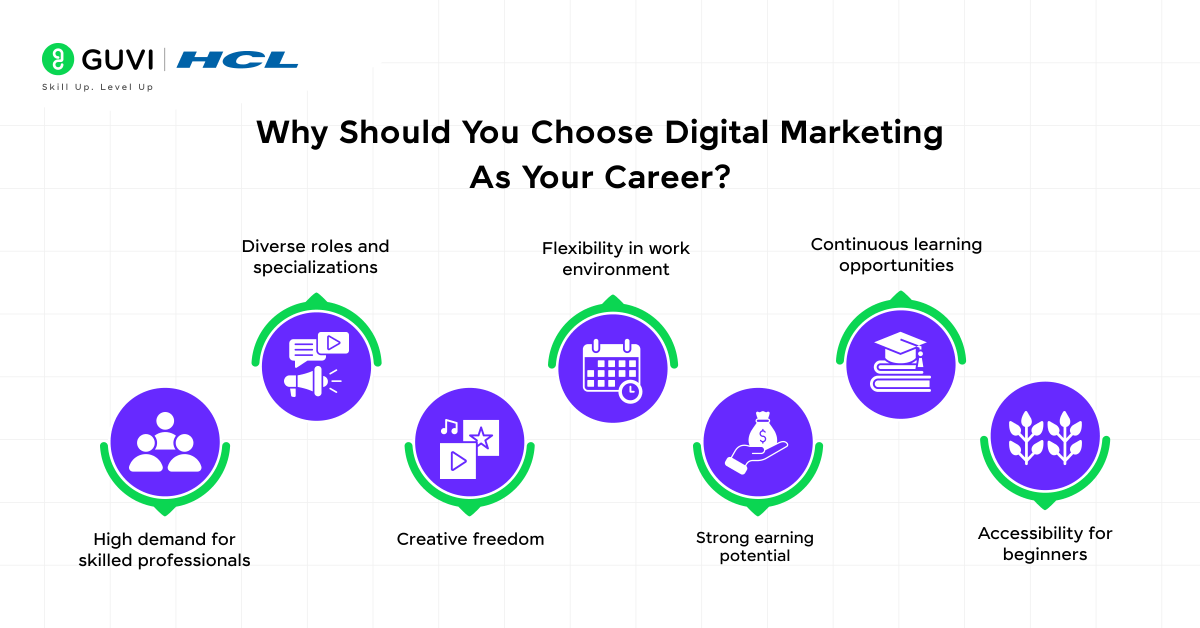
By now, you must’ve understood that digital marketing is one of the most exciting and in-demand career fields today. With businesses moving online, there’s a huge need for skilled professionals who can help brands connect with their audiences through websites, social media, emails, and search engines.
What makes this career so appealing is its diversity, whether you love writing, analyzing data, creating videos, or managing projects, there’s a role in digital marketing that fits your interests. Plus, it’s a field that allows you to be creative while using data to make smart decisions.
Here are some reasons to choose digital marketing as a career:
- High demand for skilled professionals as businesses continue to prioritize their online presence.
- Diverse roles and specializations such as SEO, social media, content marketing, and analytics.
- Creative freedom to craft innovative campaigns and strategies.
- Flexibility in the work environment, with many roles offering remote or freelance options.
- Continuous learning opportunities due to the ever-changing nature of digital tools and trends.
- Strong earning potential with opportunities to scale up as you gain experience.
- Accessibility for beginners, with plenty of online courses and certifications available to start your journey.
Digital marketing offers endless opportunities for growth, making it a great choice for anyone looking for a rewarding and dynamic career.
Challenges when Switching a Career Change to Digital Marketing
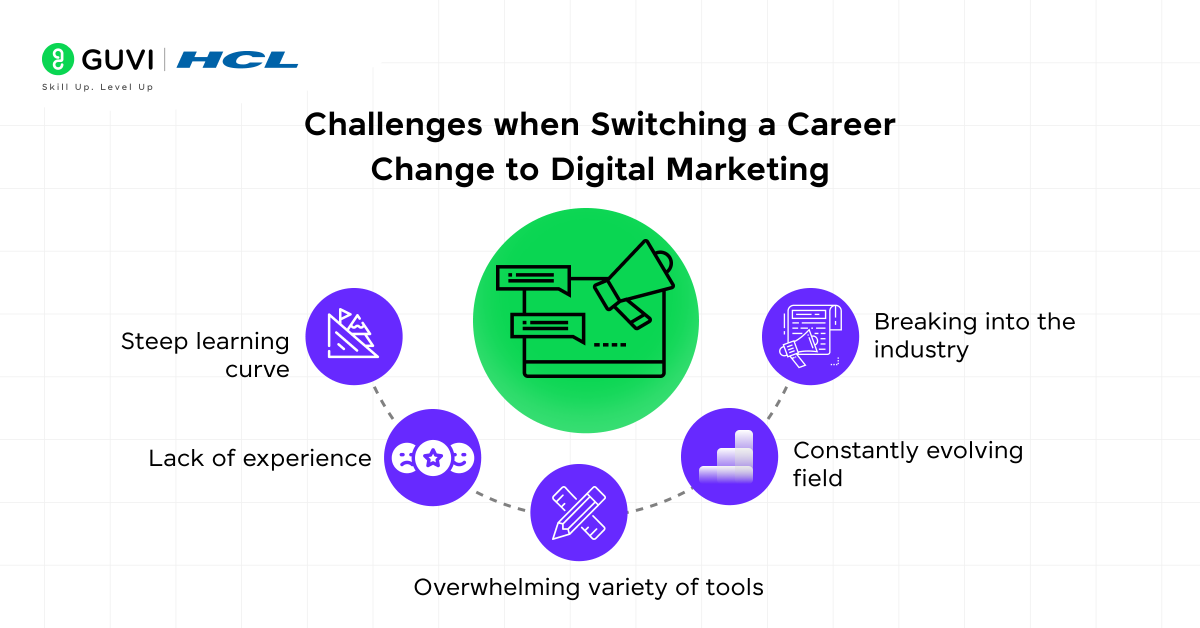
Switching to a digital marketing career is exciting, but like any career change, it comes with its own set of challenges.
One of the biggest hurdles is the steep learning curve, especially if you’re new to the field. Digital marketing involves understanding multiple areas like SEO, social media, content creation, and analytics, all of which require time and effort to master.
Another challenge is gaining practical experience when you’re just starting out. Employers often look for hands-on skills, and without prior experience, it can be hard to prove your capabilities.
Balancing learning with building a portfolio or working on real-world projects might feel daunting. Additionally, staying up to date with the ever-changing trends in digital marketing can be tough, as the field evolves quickly with new tools and algorithms emerging all the time.
Here are some key challenges to keep in mind:
- Steep learning curve: Understanding the fundamentals of multiple areas in digital marketing can take time.
- Lack of experience: It can be challenging to showcase your skills without prior projects or work experience.
- Overwhelming variety of tools: Navigating and choosing the right tools or platforms can be confusing for beginners.
- Constantly evolving field: Staying updated with trends and changes in algorithms requires continuous learning.
- Breaking into the industry: Competing for entry-level roles without a formal marketing background can feel intimidating.
While these challenges might seem tough, they’re not impossible. By focusing on building your skills step by step, gaining hands-on experience, and staying committed to learning, you can overcome these obstacles and successfully transition into digital marketing.
If you want to learn Digital Marketing through a step-by-step process guided by an actual Digital Marketer, consider enrolling in GUVI’s Certified Digital Marketing Course which not only teaches you everything about the subject but also provides you with an industry-grade certificate!
Conclusion
In conclusion, a career change to digital marketing is an exciting and rewarding opportunity in today’s digital-first world. While the journey may have its challenges, the field’s flexibility, diverse roles, and high demand make it a worthwhile pursuit.
Remember, every digital marketing expert starts as a beginner. The key is to take it one step at a time, learn the basics, gain practical experience, and build your personal brand.
With the right mindset and effort, you can make this career change a reality and thrive in this dynamic field. The future of marketing is digital, and it’s waiting for you to be a part of it!
FAQs
While a formal degree isn’t mandatory, acquiring certifications in areas like SEO, content marketing, and social media can enhance your credibility. Practical experience and a strong portfolio are highly valued by employers.
Engage in internships, freelance projects, or volunteer to manage online presence for non-profits or local businesses. Starting your own blog or social media channels can also showcase your skills.
Essential skills include strong communication, analytical thinking, creativity, and proficiency with digital tools and platforms. Adaptability and a willingness to continuously learn are also crucial in this ever-evolving field.
While not essential, a basic understanding of HTML and CSS can be beneficial, especially for roles involving website optimization and email marketing. However, many digital marketers succeed without coding skills.
The timeline varies based on individual dedication and prior experience. With focused effort, acquiring foundational knowledge and building a portfolio can take anywhere from a few months to a year.


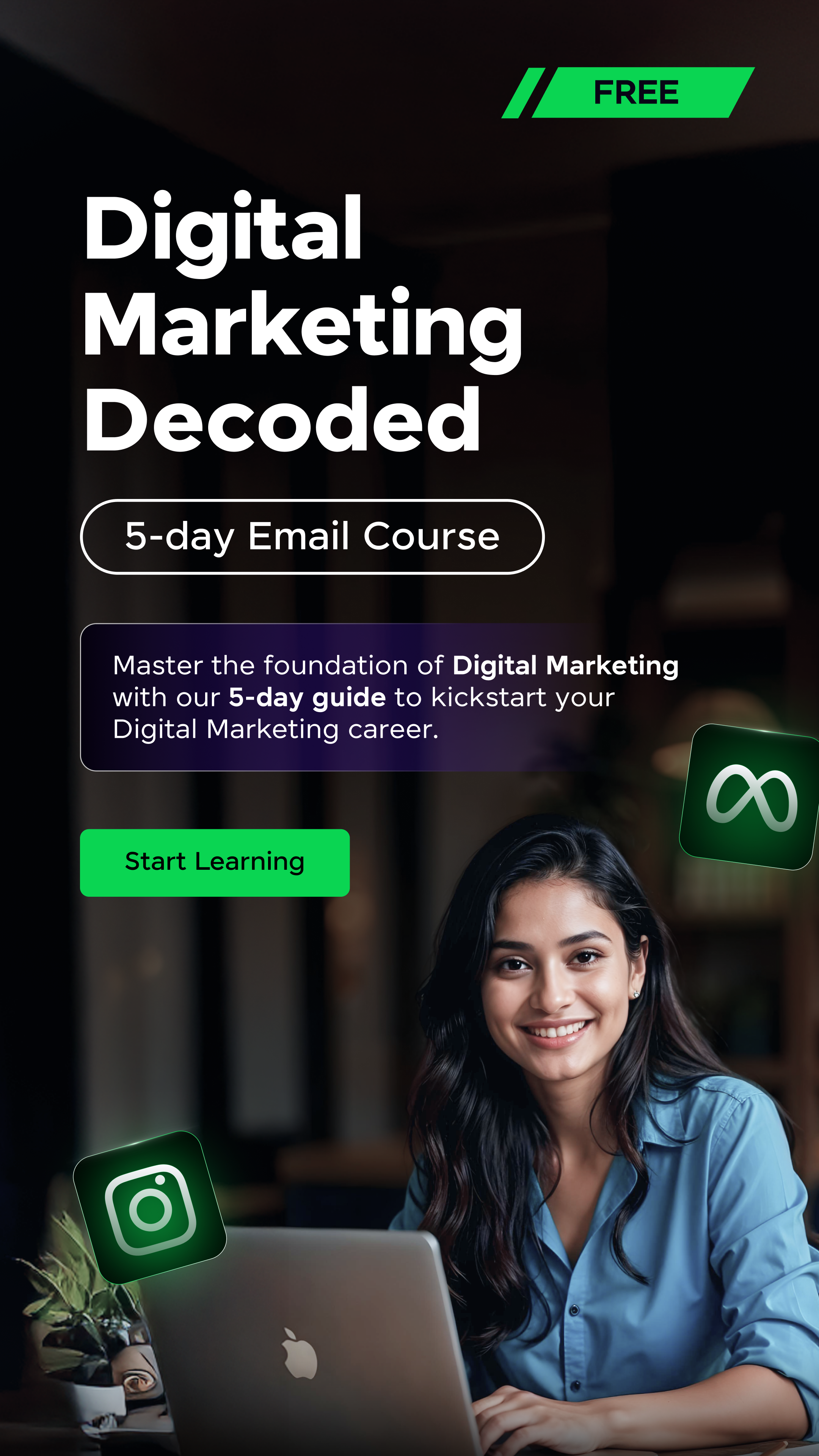
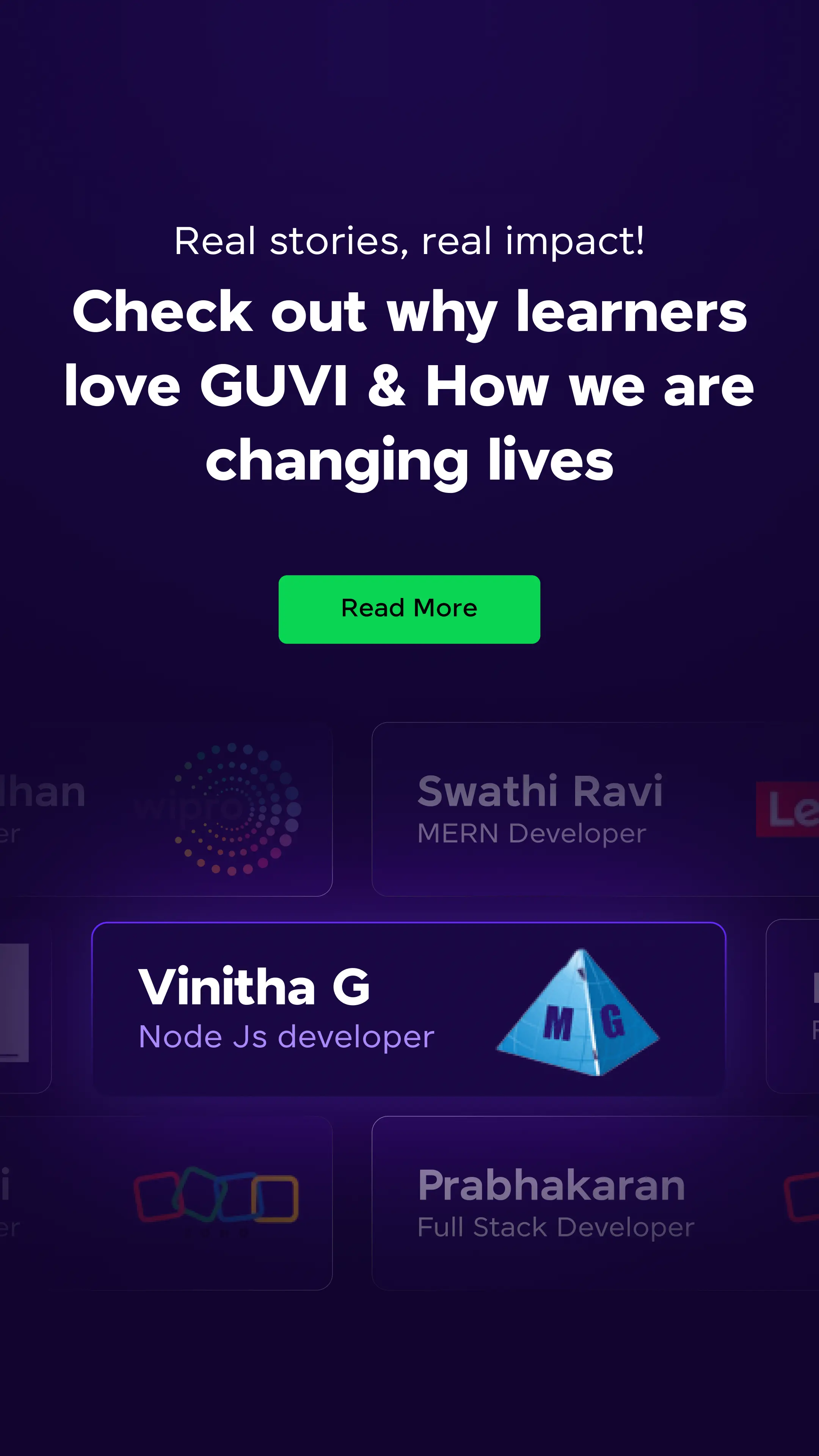























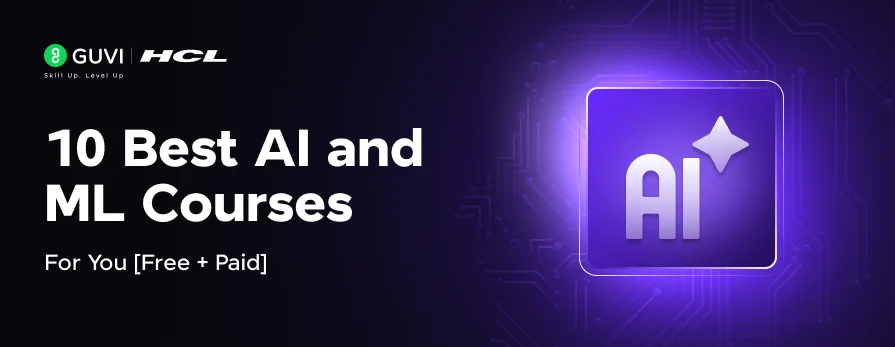

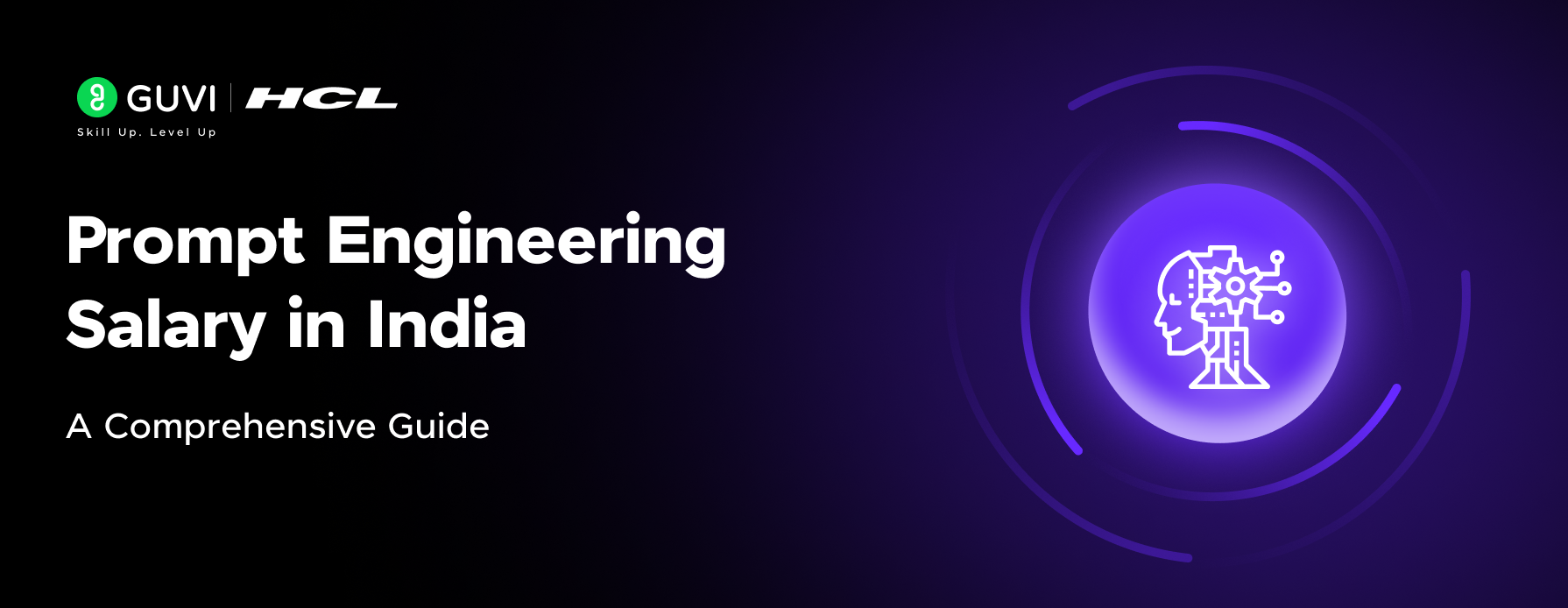


Did you enjoy this article?